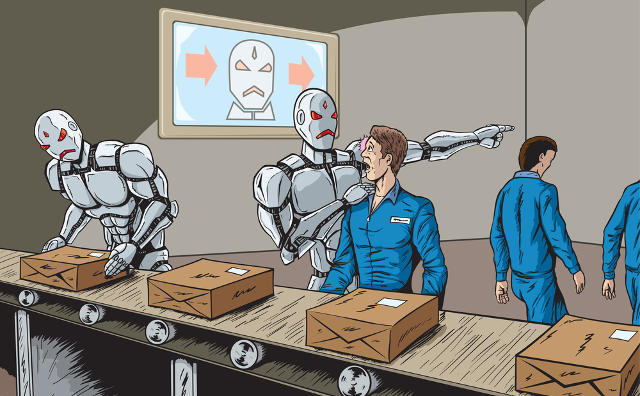The Grant Thornton International Business Report, which surveyed more than 2,500 executives across the world, discovered that 56% of businesses are already resorting to automated business practices or are planning to do so in the next 12 months.
Manufacturing jobs stood on top, followed by jobs in clean technology (39%) and the food and beverage sectors (35%).
The sectors safest from automation are those in hospitality, education, and healthcare (9% each).
The research also found that businesses are investing more on R&D, which could commit to the growth in automation. In 2015, 29% of companies said they are planning to increase R&D budget, up from 26% in 2014.
Rather than leading to mass retrenchment, the findings suggest employees will be relocated elsewhere if their jobs are automated. More than half of firms planning to automate roles say they will relocate employees to other areas, with 28% saying employees will be trained to operate new machinery. In manufacturing, 44% of companies expect to relocate rather than remove employees.
Grant Thornton partner and head of technology sector Nick Watson said it was “premature” to ask whether robots would replace people. Instead, he warned that the automation of low skilled jobs could lead to “societal challenges”.
“Clearly the rise of artificial intelligence, supercomputers and sensors will have profound consequences for jobs, pay and the make-up of workforces,” he said.
“We may see people redeployed to lower-paid service roles as high-powered and previously high-paid jobs become the preserve of intelligent machines. Without intervention we will continue to see a growing divide in income and opportunity between knowledge-based and service-based economies and careers.”
He added: “No sector or profession is immune. Increased dialogue between governments, businesses and education institutions will help us better understand where gaps in the labour market will exist, to ensure we have a pipeline of people being educated and trained to fill those roles.”




















